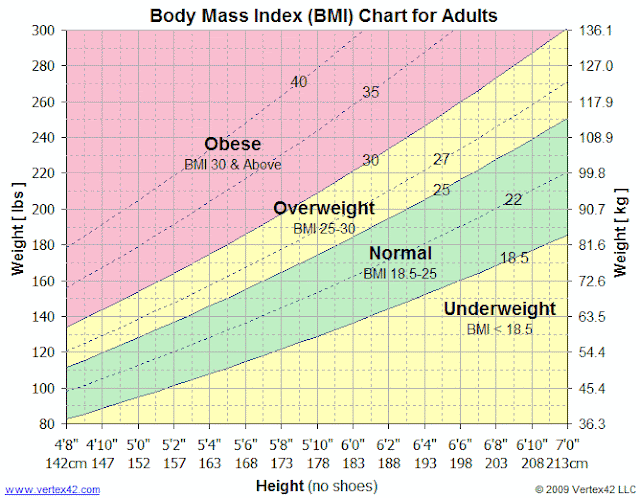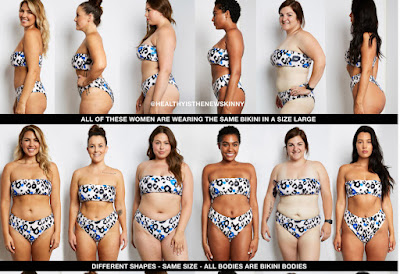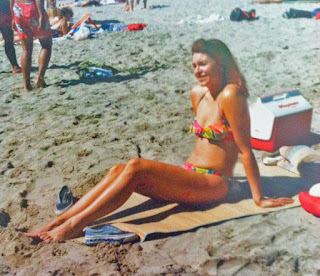5'8" 156 lbs, size 6-8
NOTE: This post is meant for educational purposes to help wade through the ideal weight range for an adult who wants to avoid disease process and feel confident. However, discussion about weight for some people becomes a mental trigger that can create anxiety, depression, self-loathing, and cycles of self-abuse. If this the case for you, please contact your physician to begin a discussion about healthy weight expectations in the proper setting.
Figuring our your ideal weight can be an emotionally sensitive thing. Very few people find out that, in this moment, they are the ideal weight. With that comes condemnation, loathing, excuses, and apathy.
Right now, we sit in a time like the 1970s when everyone smoked and it built up to a socially acceptable and even expected activity until the consequences really hit home. Eventually, it became less and less acceptable socially and quite devastating to families and friends.
I believe the weight issue is an insidious one because most people think it only hurts themselves and doesn't have secondhand issues. But, we all pay for obesity and the disease process, from employers to health insurance, social programs paid by taxes, and work force numbers. When one has self-destructive behaviors there is collateral harm, whether it's children, an employer, a spouse, food and health bills, or one's relationships.
Let's talk about ways to know your ideal weight, keeping you the individual in the formula -
First, let's differentiate two target weights -
One target weight is to achieve optimal health and stave off disease processes. This is to take advantage of not being labeled overweight or obese, or underweight. This also includes lessening or putting into remission conditions such as type II diabetes and hypertension, bad knees, breathlessness, exhaustion, and generally feeling sick. It's for lessening blood clotting and strengthening immunity. It's about stamina and quality of life. These are all noble and practical (not emotional) motivations.
The other target weight is emotional target weight and often times that is like chasing a cat when it's time for it to take a bath. No matter how close you get to that weight, the end point often shifts a little lower, and a little lower. When you realize that weight isn't an indicator of personal worth, that "ideal weight" doesn't just automatically make all of your life ideal, you are ahead of the curve. Lots of people lose weight but look around themselves and find that nothing magically got better about their life situation.
HEALTHY IDEAL WEIGHT
Physicians are trained to utilize the BMI formula (body mass index) and that's fine, but we also have learned over the years that those with large frames and athletic muscular bodies will be categorized as obese, and those in the healthy BMI may be dangerously high in fat versus muscle ratio.
But, as this is what your doctor will likely compare you against, let's take a look at this ideal BMI scale. I will also discuss where I fall in each of these methods so that you can see how we use these tools.
First, let's check your body frame size. It's very simple. wrap your thumb and middle finger around your opposite wrist. If the fingers overlap, you are a small frame. If the fingers just touch, you are a medium frame. If the fingers don't quite touch, you are a large frame.
I am 5'8" and my fingers almost touch, but not quite, so I would put myself at the lower end of a large frame.
Here's a scale utilized on MyFitnessPal utilizing frame sizes.
With my 5'8" and large frame, my ideal range is placed at 146-167. I find this scale extremely accurate for me because when I was in the 140s, people asked me to please eat something and my long limbs looked pencil thin. My target weight if placed in the center of large frame is 156 lbs. That is a very accurate estimate!
Now, let's utilize the measure that your physician will use, the body mass index (BMI).
At 5'8" tall, my (green) normal BMI range is 124-164. The middle of that range would be 144 lbs (very low for my frame, loose size 6).
So, as you can see the BMI is a pretty wide crap shoot that doesn't account for your body frame or your muscle versus fat ratio. If you land somewhere in that basket, good for you. But, all it can do is show that if you are in the green zone you have greatly lessened your chance of chronic diseases like diabetes and hypertension.
Some diseases overweight individuals are susceptible to -
hyperlipidemia
hypertension
type 2 diabetes
coronary artery disease
sleep apnea
gallbladder disease
osteoarthritis
body pain
depression
covid complications
some forms of cancer
As the BMI scale isn't accounting for fat, it can be misleading.
In India they found that there was a rise in type II diabetes, but the citizens were mostly in the healthy BMI range. What was going on? It was discovered that they tended to carry have visceral fat around the midsection and that is often times the factor that can push one into these health conditions (above) even though they are a "healthy weight." The studies on this subject also indicated that a mother with low B12 during pregnancy might give her child a higher chance of carrying visceral fat.
Did you know some movie stars in excellent physical form and quite athletic-looking are considered overweight or obese on the BMI scale due to their muscle weight? Tom Cruise is considered "overweight" on BMI scale. Arnold Schwarzenegger is considered "obese."
We have the waist measurement as another indicator of ideal size, but there again we run into the problem of height differences. If I have a 5'1" friend with a 35" waist, she looks quite overweight/obese, but if I, at 5'8", have a 35" waist, I look slender.
This chart (above) seems to be a bit small'ish, but do note that it allows for bigger inches for a taller woman or man. The same goes with clothing sizes. When I wear a size 4, I look like I am suffering anorexia but a size 4 on a petite woman looks like a fine size.
In general, it is said that women should keep their waist measure below 35" and men below 40".
Women often compare themselves, but fat distribution, frame size, height all contribute to a size or weight looking different on another. I recall when I was working in a clothing store and the other girls were very short and wore size 2. I was desperate to get into a 2. For someone of my frame and height to get into one, I'd have to shed my skin and muscle.
all these women above are wearing a size large bikini, each with luscious beautiful shapes as individual as snowflakes.
I am 5'8" and large-framed. My ideal for health is supposed to be 156 pounds, 27-1/4" waist, and that makes me a size 6.
Another woman who is 5'3" and small-framed's ideal for health is 115 pounds, 25" waist, and that makes her a size 4.
I can literally have 40 pounds more on my frame but be only one size bigger than that petite woman.
Distribution and frame size is a huge factor in your clothing size.
For example, I have zero fat on my hips. It's bone. No matter how much weight I gain, I cannot get fat on the hips as there are just really no fat cells there to plump up. So, when my belly grows, my size grows in bottoms because of waistband, but those bottoms were designed for women with proportional hips (my waist and hips are always around 4"-6" apart in size), so there's tons of material bagging on the hips. For some women with a curve to their hips, they have to buy pants larger to fit the hips, but then the waist is too loose.
This shows how unique our bodies are but in society we feel a desperate need to conform, even if it's to the proportions of pre-made clothing and its sizing ratios. Don't wish your body to have different proportions, just to carry less fat in total. Where the fat remains is your own personal signature.
In the case of finding your ideal weight for optimal health, you can't avoid the ratio of fat to muscle. You can get a rough estimate by using the Army method of measuring your hips, waist, and neck. - LINK
Here, again, it's a rough estimate as a skinfold caliper method is better. When I followed the measures, I got "obese," but by BMI I'm "healthy." So, what am I? Fish or Fowl? See, how we go deep into the weeds here? In general, as a tall woman, my waist and hip measures are going to be larger and so my fat estimate is not realistic either, nor is the BMI that isn't accounting for how muscular I am.
I recall when I was 22 and wanted to lose weight. I weighed 123 pounds at 5'8" and wore a size 4, and my reasons for wanting to lose was that parts of me jiggled (below). Well, parts of me jiggled because I had a high fat percentage for my size instead of having lean muscle. It didn't occur to me to gain muscle (and weight) to actually look better. This is very common in young women to think that jiggle means you're "fat."
I hated the thighs and belly and thought I should lose weight. The doctor thought I was just below healthy weight. When I did lose the 5 pounds I thought was critical, I looked like this (below) a praying mantis at 118 lbs.
I was so caught up in Southern California 1980s beach ideal looks that I didn't acknowledge that I had no periods and started to faint when I stood up because my blood pressure was so low. I just thought "wow, I almost fit in a size 2 at 5'8" and large frame!" This is what young women endure in self-loathing and goals.
My goal at 22 wasn't health. It was how I looked at the beach. Still, no matter how much weight I lost, I hadn't toned the muscle and I couldn't grow breasts for the life of me, so I would continue to have unrealistic expectations.
What I've learned along the way is that exercise has a place in metabolism and also in building muscle and keeping muscle. I just don't think of exercise as a particularly great way to lose weight, as it takes an enormous amount of exercise to burn off a cheeseburger. It's better to approach your eating to get the weight off the body and exercise to be sure you gain or maintain muscle.
EMOTIONAL IDEAL WEIGHT
I would easily say a majority of overweight or obese people set up their lives for "when I lose the weight," as if life begins then.
The key to ideal weight is a marriage of a healthy weight and recognizing personal accomplishment. That is the sweet zone.
You want to be where you reduce health risks, are able to do the things you enjoy, have stamina and energy, and view yourself in the mirror and realize you are a healthy happy person.
The ideal weight (photo above), I was able to do the things I love, had lots of energy, felt confident and could wear the clothes I like. It was the right combo. At a lower weight I would have lost energy, got lightheaded easily, wouldn't have stamina. If I weighed more, I would have been a bit sluggish, lacking confidence, trying to hide body parts, and would likely get more colds and flus easily.
It was also very easy to maintain that weight. That made it a realistic weight while also satisfying my desire to enjoy fashion and not suffer discomfort of being underweight or overweight. (see my upcoming post in 2 days about dieting to lose weight versus changing lifestyle to lose weight).
The ideal weight range for health should also be an ideal emotional target too. A healthy BMI (range depending on your frame size) is going to guarantee you look great in clothes, feel confident, physically feel healthy and robust.
Women have a lot of trouble being comfortable even in the ideal weight because if you've arrived, what do you bully yourself about next? You get so used to "when I lose (blank) pounds, everything is great," that when you reach a target weight you might feel like nothing else in your life changed, so perhaps you need to be "more," "better," "thinner..."
I will say, losing as much weight as I have and being in a happy zone now, I feel oddly liberated. The lingering "you're not good enough" message was no longer there and was replaced with "girl, you did it - you can do anything!" I became empowered.
I was not used to cheerleading myself, but was quite used to throwing tomatoes at all my efforts and nitpicking everything.
There is an internal background noise, whether you recognize the inner speech or not, and it perpetuates weight gain and disappointment in many arenas of life because. Whether you realize it or not, you're not your own cheerleader, you are your own heckler.
When you lose the weight and that taunting chatter is gone, you see yourself in relation to the world and others in a light that makes taking on new challenges easier as you feel you actually make things happen and can affect change.
That was the thing holding you back, that wee voice that said, "every springtime you say you'll lose weight and wear a swimsuit this summer and every year you don't!"
Letting yourself down has massive reprocussions on your ability to see yourself accomplishing anything. It's like a mental quicksand.
Your head needs to be in the right place when you're the goal weight because the mind gets used to a routine and if the routine was to bully yourself about your weight, you may keep up that dialogue. You begin to note loose skin, stretch marks, cellulite, maybe your nose is too big, maybe you have crinkles around your eyes.... This relationship is a toxic one.
If you have learned anything about manifesting, you know that what you focus on you drive yourself right into like target fixation.
Every accomplishment needs to be full of gratitude.
"Today, I avoided the candy bar in the freezer." "I did heavy yardwork and held up well." And when it comes to your body, "I would rather have loose skin than have visceral fat. It's my battle wound and I'm proud of what it stands for."
Part of my weight loss and maintaining has been my nightly prayers. Instead of asking for help or begging for something, I simply say "Thank you." I list all the things I was thankful for that day. There is no position of coming from weakness or desperation, selfishness, or petulence. It is simply stating that "together we made today happen and it was good and I am thankful."
Be proud of your body. It got you here. It is the package all your greatest gifts are contained within. Do not conform to the world around you. Be unique as a snowflake.
Focus on content because no one gets excited about Christmas wrapping paper; they get excited about the prize inside.
Focus on content because no one gets excited about Christmas wrapping paper; they get excited about the prize inside.
Be thankful you reached a healthy weight range, you can fit into clothing you enjoy, participate in life, and apply what you learned about focus for other goals.
NOTE: I am not a medical professional. I am a woman who has had a life-long interest in nutrition, exercise, experience in modeling and pageants, who has fought about the fine line of what my ideal weight is. You can call on lots of health care professionals from nutritionists to internists to find out what your ideal weight is health-wise, emotion-wise, however, that's something you need to settle in your own mind.










Comments
Post a Comment